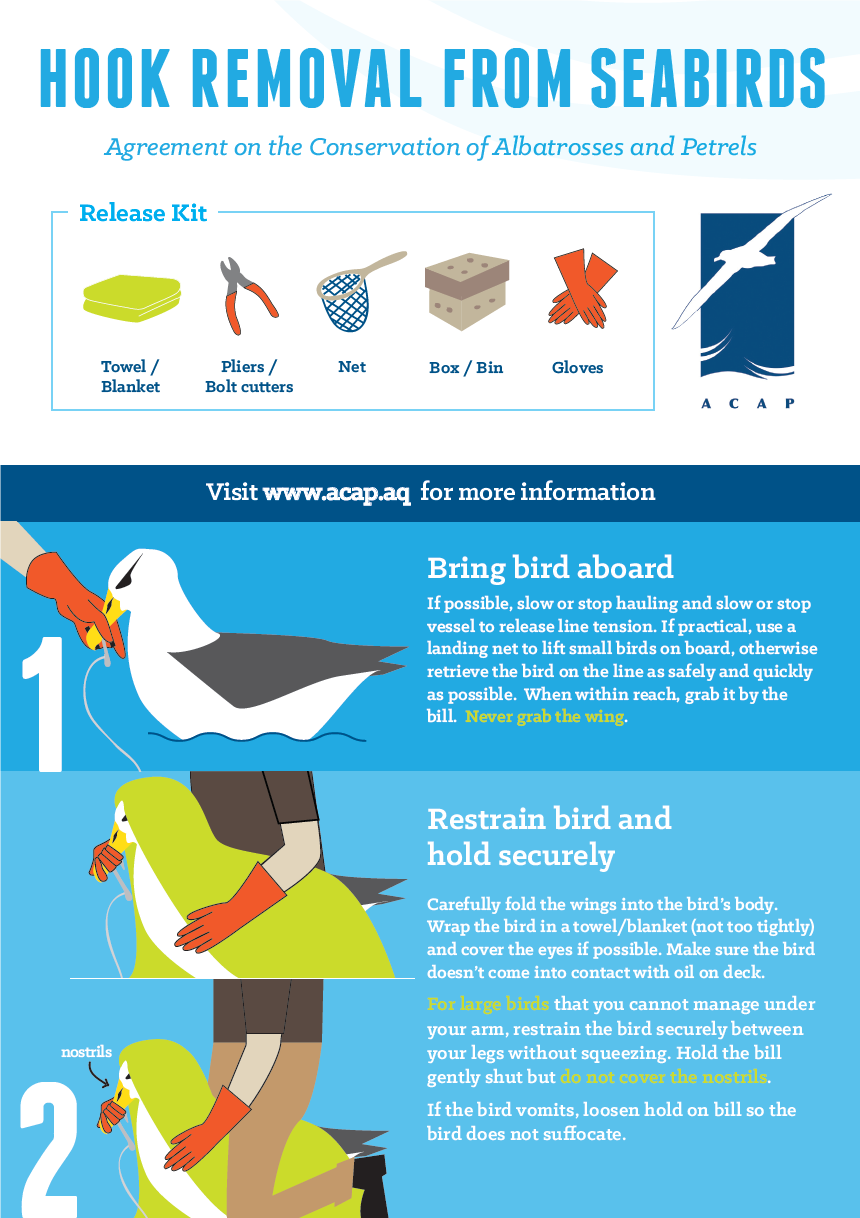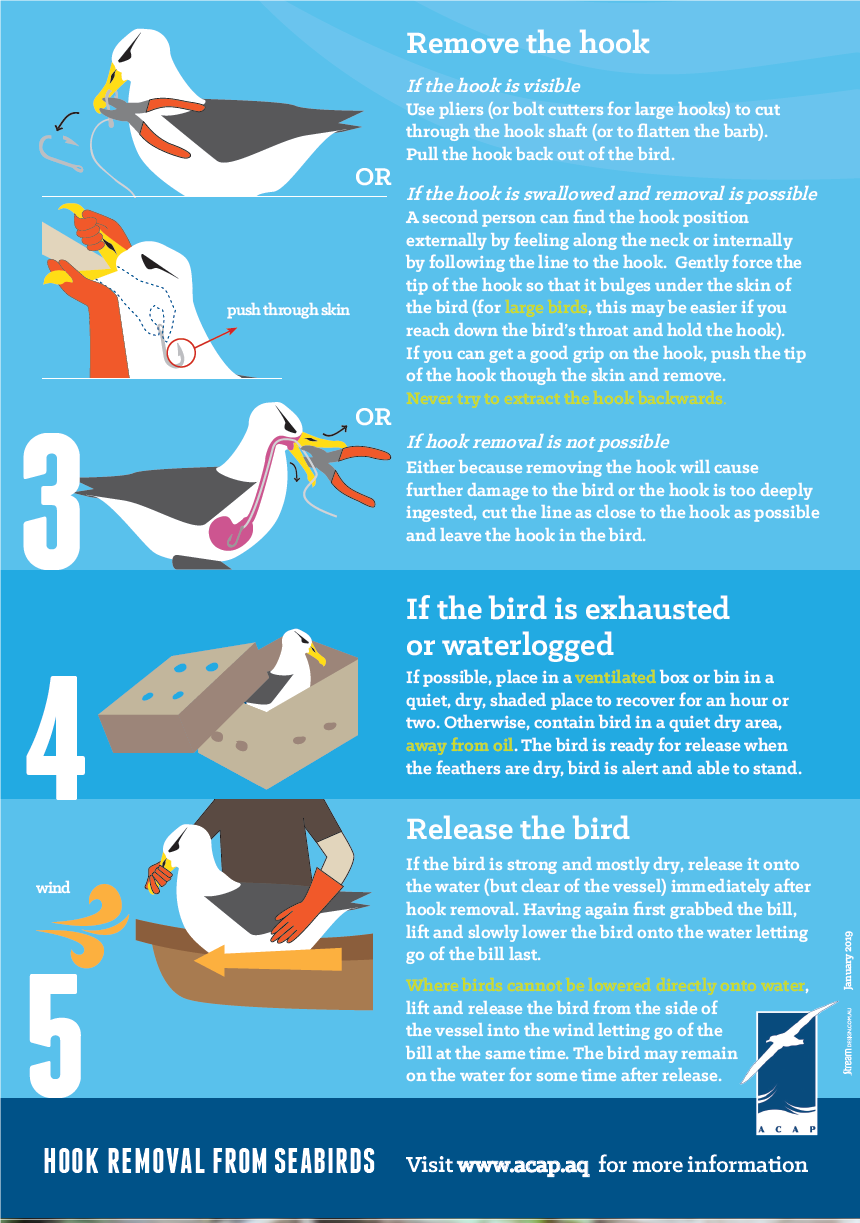The 16th Regular Session of the Western & Central Pacific Fisheries Commission (WCPFC-16) was held earlier this month in Port Moresby, Papua New Guinea, where it adopted guidelines on the safe handling and release of seabirds. ACAP was represented at the meeting by its Executive Secretary, Christine Bogle who writes to ALN:
“The Agreement on the Conservation of Albatrosses and Petrels is very pleased that the WCPFC -16 has adopted the proposal put forward by the New Zealand Delegation (WCPF16-2019-DP07 - PROPOSAL FOR ADOPTION OF SUPPLEMENTARY INFORMATION – SAFE HANDLING AND RELEASE GUIDELINES FOR SEABIRDS) for non-binding guidelines on the safe release of seabirds caught alive on hooks. These guidelines are based on ACAP advice and will help ensure that birds caught alive on hooks will have a better chance of survival. These guidelines can be used not only for hook removal but also as general guidelines on the safe handling of injured seabirds on board.” The Executive Secretary further noted that ACAP is working on developing safe handling and release guidelines for birds entangled in purse-seine nets.


Read more here where the WWF is quoted to say the newly adopted guidelines “should be mandatory and subject to clear monitoring and compliance review.”
ACAP submitted a paper (WCPFC16-2019-OP08 - ACAP STATEMENT ON REDUCING SEABIRD BYCATCH IN PELAGIC LONGLINE FISHERIES) to the meeting. Its shortened abstract follows:
“The incidental mortality of seabirds in pelagic longline fisheries continues to be a serious global concern, especially for threatened albatrosses and petrels. ACAP presented a background paper (WCPFC-SC15-2019/EB-IP-03 [ACAP advice for reducing the impact of pelagic longline fishing operations on seabirds]) to the meeting of the Fifteenth WCPFC Scientific Committee in August 2019 in which we provided an update on ACAP’s advice on mitigation of seabird bycatch in pelagic longline fisheries. The paper summarised updated ACAP advice on mitigation and identified new areas of focus to address the continuing conservation crisis facing albatrosses and petrels, and the need for urgent and increased efforts to counter this crisis. This paper reiterates for the WCPFC Commission the main points made in that paper, including ACAP’s continuing emphasis on exploring with our colleagues in Regional Fisheries Management Organizations, and others, ways to work together more effectively to reduce bycatch of albatrosses and petrels in fishing operations and improve the conservation status of these threatened seabirds.”
John Cooper, ACAP Information Officer, 17 December 2019

 English
English  Français
Français  Español
Español